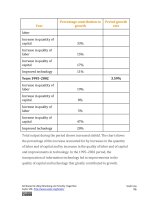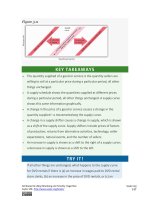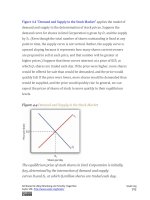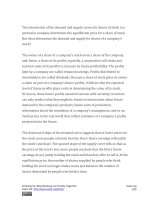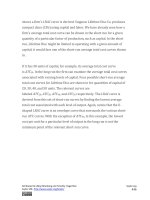Authors libby rittenberg 868
Bạn đang xem bản rút gọn của tài liệu. Xem và tải ngay bản đầy đủ của tài liệu tại đây (383.19 KB, 1 trang )
The Public Choice Theory of Regulation
The public interest theory of regulation assumes that regulations serve the
interests of consumers by restricting the harmful actions of business firms.
That assumption, however, is now widely challenged by advocates of the
public choice theory of regulation, which rests on the premise that all
individuals, including public servants, are driven by self-interest. They
prefer thecapture theory of regulation, which holds that government
regulations often end up serving the regulated firms rather than their
customers.
Competing firms always have an incentive to collude or operate as a cartel.
The public is protected from such collusion by a pervasive incentive for
firms to cheat. Capture theory asserts that firms seek licensing and other
regulatory provisions to prevent other firms from entering the market.
Firms seek price regulation to prevent price competition. In this view, the
regulators take over the role of policing cartel pricing schemes; individual
firms in a cartel would be incapable of doing so themselves.
Because it is practically impossible for the regulatory authorities to have
as much information as the firms they are regulating, and because these
authorities often rely on information provided by those firms, the firms
find ways to get the regulators to enforce regulations that protect profits.
The regulators get “captured” by the very firms they are supposed to be
regulating.
In addition to its use of the capture theory, the public choice theory of
regulation argues that employees of regulatory agencies are not an
exception to the rule that people are driven by self-interest. They
Attributed to Libby Rittenberg and Timothy Tregarthen
Saylor URL: />
Saylor.org
868
